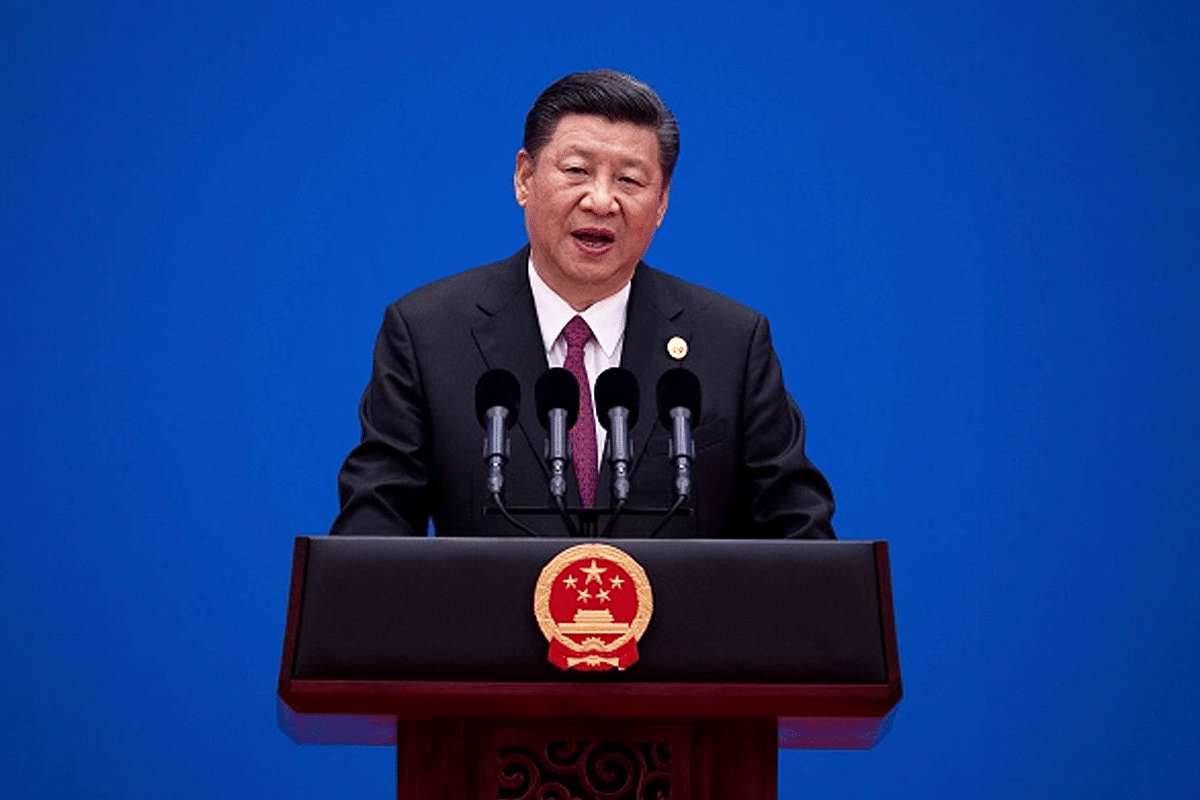World
Why Xi Fears India As Much As The US: Civilisationally, We Are The Only Rival
- China may despise India’s “weakness” and guarded moves to isolate it globally, but it clearly has seen the writing on the wall.
- It fears India’s potential rise not only economically, but potential for global leadership and spiritual progress.

Chinese President Xi Jinping.
The Chinese incursion into Arunachal Pradesh on 8-9 December, which was thwarted by the Indian Army, should not be seen purely as Xi Jinping’s attempt to overcome his falling domestic standing by diverting attention to the external front.
The timing of the incident may well suggest that there are domestic motivations behind this incursion, but we need to understand the deeper underlying (and unstated) factors behind Xi’s insecurities vis-à-vis India.
Xi believes that China’s time to rule the world has arrived after centuries. But he now finds that not only may it never overtake the US in terms of GDP (gross domestic product), even within Asia its supremacy will be short-lived, probably for less than a decade.
India is widely expected to become the world’s third largest economy by 2030, based on favourable demographics and growth potential, while the reverse is the case with China (poor demographics, weakening growth prospects, hostile external environment, etc).
India will also become the biggest Asian economy after China during the same period. It is Asia that is becoming bipolar or multipolar, not just the US-dominated world.
But China fears India’s rise for more than just the likely expansion in GDP and military might. Here are the key reasons why China is desperately seeking ways to damage or slow down India’s rise.
First, unlike the West, which the Chinese have learned to despise or treat with disdain due to the former’s internal weaknesses, India has the civilisational depth and antiquity that rivals China.
India and China are the only two civilisational states with an unbroken history of nearly five millennia. China knows that, and that worries Xi and his top leadership.
Second, throughout history, the flow of knowledge and spiritual wisdom has largely been one way, from India to China.
While we do acknowledge the usefulness of Chinese medical techniques like acupressure, respect for the Chinese model has grown only over the last three decades when China became factory to the world, an export powerhouse, and the world's No 2 superpower.
This means respect for Chinese power will not last, and may vanish once India rises to its true potential.
Third, unlike China, India’s economy is domestically driven, and hence not a threat to the world in terms of import dependence. The world does not want another export powerhouse to rise.
This implies that our rise will be less problematic for the rest, and hence worthy of less antagonism.
Fourth, China’s strategy of promoting Pakistan to keep India off balance is unravelling. Not only is Pakistan self-destructing faster than expected (the Chinese know this, as they are being targeted by Balochs and even some Islamist forces inside Pakistan), India has also come to the conclusion that China is the real threat, not Pakistan.
Pakistan is a nuisance, not a threat. Also, the Chinese know that at some point, when Pakistan either splinters or becomes even more Islamist, it can be a source of radicalisation among its own Muslims. China is playing with a sectarian hand grenade that could blow up in its own face.
Fifth, democracy will always give India more respect than China. If the Chinese have been wined and dined by the West so far, it was because they hoped China would be the antidote to the Soviet Union, and its successor state, the Russian Federation.
But the Ukraine war threatens to make Russia into a superpower version of North Korea, and, once the Ukraine war ends, Western diplomacy will seek to reopen ties to Russia, which means China will be the new global evil.
It hasn’t helped that Xi has behaved like a T-Rex in the neighbourhood, trying to bully one and all. Everybody knows it is not a benign power.
China’s military and economic power commands respect, not his behaviour. And Xi knows this.
Last, and this is what gives immediacy to the Chinese fears about India, is our assumption of the G-20 presidency. China wants to ensure that India gains no mileage from it, and will do everything to sabotage it as much as possible.
The incursion in Tawang is a reminder to the world that China has the military muscle, though not the muscularity, to threaten India. Xi is sending India a warning that we can ruin your G-20 party.
Xi is speeding up perceptions about China from being the world’s great growth hope to outcast. India is hastening the process for the reasons mentioned above.
Make no mistake, China may despise India’s “weakness” and guarded moves to isolate it globally, but it clearly has seen the writing on the wall. It fears India’s potential rise not only economically, but potential for global leadership and spiritual progress.
In the Middle Kingdom, the Chinese Emperor ruled "All Under Heaven". But Emperor Xi knows that his empire is shrivelling even before it is being established. India will puncture it.
Introducing ElectionsHQ + 50 Ground Reports Project
The 2024 elections might seem easy to guess, but there are some important questions that shouldn't be missed.
Do freebies still sway voters? Do people prioritise infrastructure when voting? How will Punjab vote?
The answers to these questions provide great insights into where we, as a country, are headed in the years to come.
Swarajya is starting a project with an aim to do 50 solid ground stories and a smart commentary service on WhatsApp, a one-of-a-kind. We'd love your support during this election season.
Click below to contribute.
Latest